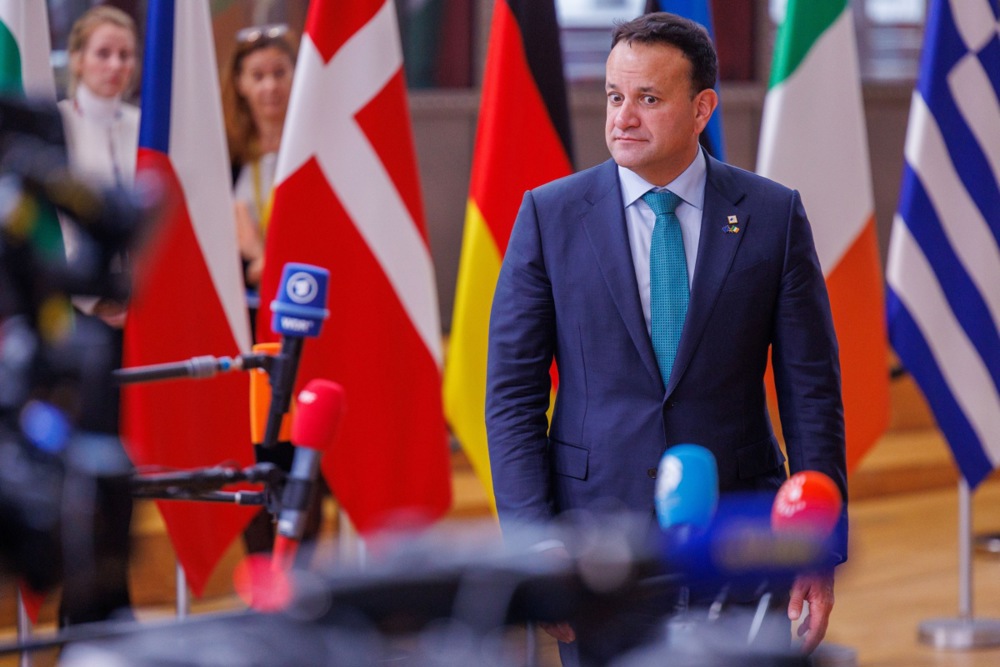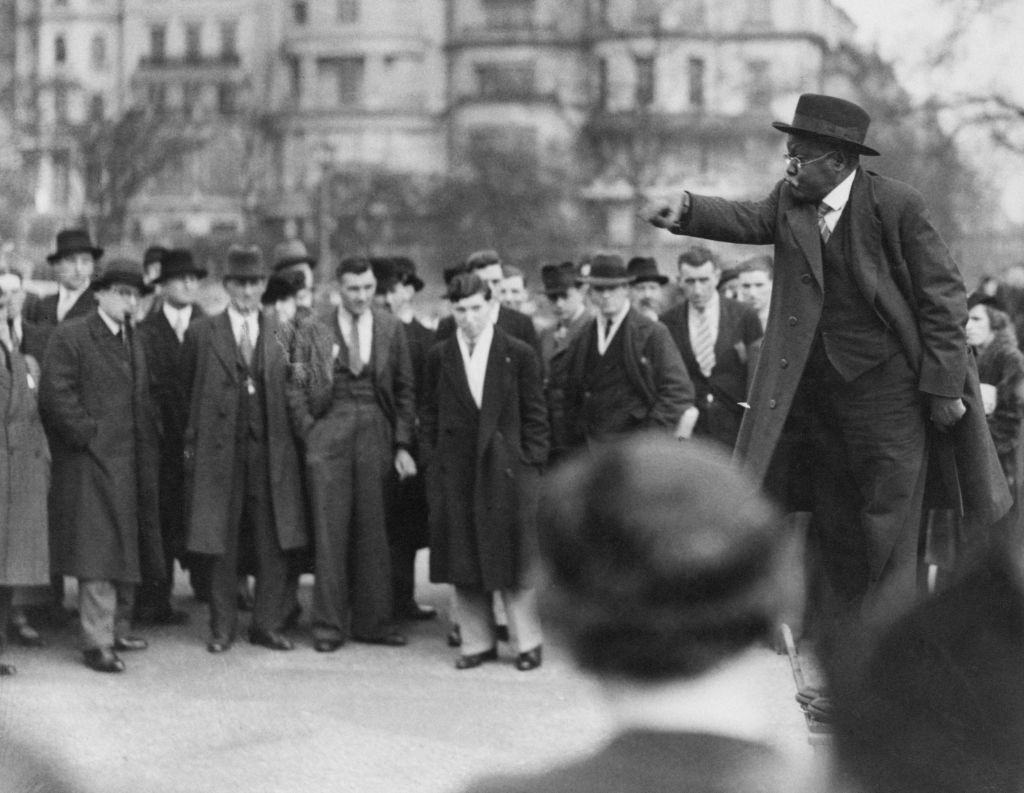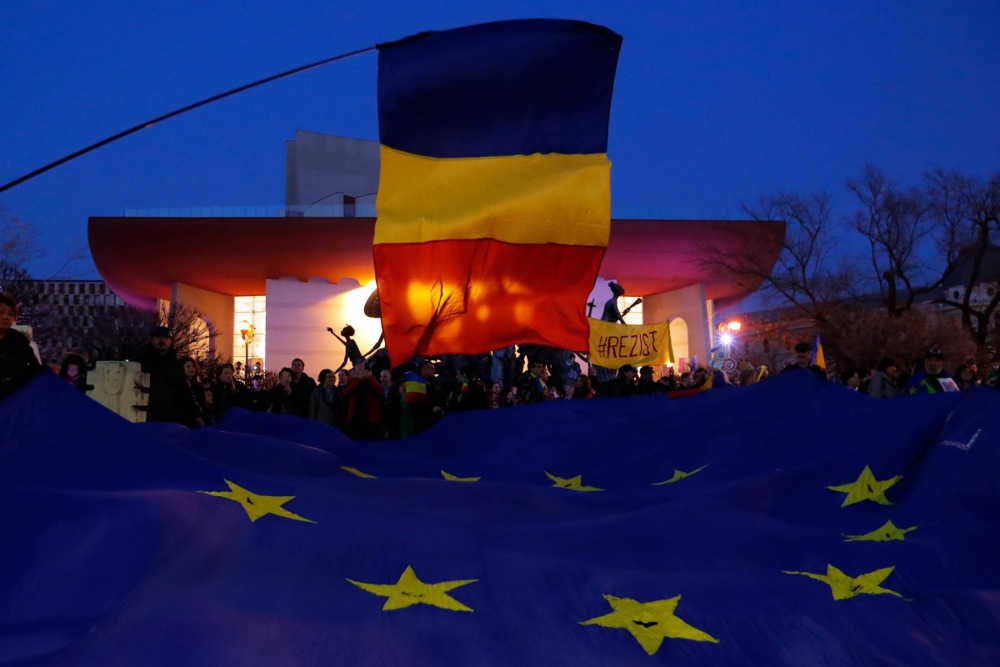Donald Trump is overwhelmingly likely to be the Republican candidate for President, and some polls show him beating Biden in approval ratings by a significant margin.
Former UK Prime Minister Boris Johnson has declared his support for Trump, but with a quite big string attached. “If he does the right thing and backs the Ukrainians — and I believe he will —”, says Johnson, “ a Trump presidency can be a big win for the world”.
Critics of Johnson would say he is showing his true populist colours by backing Trump. But for Johnson to back Trump on the basis that Trump will do the polar opposite of what he is expected to do if he is elected President needs more explaining than that.
Trump described Putin’s invasion of Ukraine as “genius” and “savvy” , and has boasted that he – Trump – would resolve the Ukraine war in 24 hours, with the implication that Ukraine would have to cede to Russia the territory that Russia currently holds.
Trump’s indifference to the fate of Ukraine, and his seeming admiration for Putin, goes hand in hand with a disdain of NATO. In 2020 Trump reportedly told EU Commission President Ursula von der Leyen that NATO was dead and that the US would never come to Europe’s aid if it was attacked.
Trump first took a liking to Johnson because he saw in Johnson a British version of himself, and he said as much in July 2019 when Johnson won the leadership of the Tory Party and became the UK’s Prime Minister.
Trump saw himself as challenging the elites in Washington, and Johnson seemed to Trump to be fighting much the same battle with the elites in Brussels.
Left-wing critics of Johnson have also likened him to Trump. Johnson certainly shares with Trump an impatience with detail, and an aversion to policy beyond the length of a soundbite. And in the run-up to the 2016 Brexit referendum he was accused of being a Putin-apologist when he blamed the EU for Russia’s attacks on Ukraine in 2014.
But if Johnson is a populist, he is not one in the mould of Donald Trump, and he is no Putin-apologist, let alone admirer. He wrote a book about Winston Churchill, and he sees himself as made of the same stuff.
So when Russia invaded Ukraine in April 2022 he saw its fatigues-clad and embattled President Zelensky as an heroic figure and instinctively took his side. Johnson visited war-torn Kyiv only weeks after the invasion and more than two months before the “historic visit” of President Macron of France and Chancellor Scholz of Germany.
In the immediate aftermath of Russia’s invasion, President Macron prioritised “peace talks” with Putin, and for months agonised more over whether Putin might be humiliated for failing to secure a quick victory over Ukraine, than Ukraine’s ability to defend itself.
Johnson, by way of contrast, had been supplying anti-tank weapons to Ukraine even before the invasion, and for as long as he was Prime Minister he continued to supply weapons to Ukraine, leading President Zelensky to describe Johnson as his “true friend”.
Since leaving office, Johnson has done his best to persuade conservative politicians and influencers in the US that it is vital that they back Ukraine in its struggle against Russia, and one of the politicians he met and tried to swing round was Donald Trump.
He has, it seems, been extremely well remunerated for all this, but he is likely to be well remunerated for whatever he chooses to talk about at his much-in-demand speaking engagements.
Johnson’s endorsement of Trump makes good sense as part of Johnson’s campaign to take the case for supporting Ukraine to the White House, which is where it seems increasingly likely Trump will end up. Johnson’s tactic seems to be to flatter Trump into doing the right thing, or at any rate to stay close enough to Trump to have his ear.
There may also be an element on Johnson’s part of hedging his personal bets with Trump and those who back him, and ensuring he remains persona grata in conservative circles and speaking circuits in the US and elsewhere.
In hedging bets Johnson will not be alone. Leaders and potential leaders of all those countries who prize the US as an ally will want to be on the best possible terms with the person now most likely to be the next President of the United States.
The latest follower in Johnson’s footsteps is NATO chief Jens Stoltenberg, who in Washington expressed confidence that the US under Trump would remain in NATO. But his forecast was linked to a strong pitch to US lawmakers that support for Ukraine and NATO was very much in the US’s interest.
But whatever the blandishments of Boris Johnson or anybody else, a confident second-time-round Trump could still ditch Ukraine and signal to Putin that the US is no longer in the business of defending Europe at the American taxpayer’s expense.
This would have huge consequences for NATO, the EU, and the balance of power in Europe, as I spelled out in some detail in a comment for this platform here.
Trump in the White House is a key if usually unspoken element in the flurry of recent warnings by top military officials in Europe that war with Russia could come as soon as in the next five years.
Ditching Ukraine could mean Ukraine and its allies would be pressured into accepting a cease-fire/”peace” settlement which would make permanent the present de facto division of Ukrainian territory between Ukraine and Russia.
If Ukraine refused a settlement and continued fighting Russia to regain its territory, NATO allies in Europe might back Ukraine with increased military aid, which already in total equals military aid from the US.
But increased European aid would be unlikely to fully compensate for the loss of US aid, not least because countries providing it would be struggling to replenish stocks of weapons already supplied to Ukraine, while at the same time upgrading their own war-fighting capabilities.
With the withdrawal of the US as a credible player in NATO, whether it formally withdrew from the alliance or not, the threat of Russia’s nuclear arsenal would enter the equation. President Putin recently pointed out that Russia had more nuclear warheads than NATO (including the US), and described this as Russia’s “competitive advantage”.
With Ukraine’s neighbours no longer shielded by the US nuclear umbrella, Russian might lose its inhibitions about the threat or use of its significant arsenal of battlefield nuclear weapons, some which are now based in Belarus, which borders Poland, Ukraine, and the Baltic states of Estonia, Latvia and Lithuania.
Russian war-fighting ability has been depleted by the war with Ukraine, and NATO’s European allies might have a breathing space of a Presidential term or two before Russia could contemplate further military adventures. Yet whatever the European allies did with that breathing space, they could not compensate for the loss of the US’s nuclear umbrella.
On that basis I have argued that the best strategy for Europe’s NATO allies, if Trump gains the White House and pulls the plug on Ukraine and NATO, is a political campaign to bring the administration after Trump back into NATO. Until then, the European allies would have to hold the line against Russia with their existing and hopefully expanding conventional military forces.
Yet to Putin, the window of opportunity for NATO allies to force a rethink in Washington on the US’s role in European defence could be a window of opportunity of a different kind: the opportunity to consolidate his gains in Ukraine, while invading the Baltics under cover of tactical nuclear weapons deployed in Belarus, on the borders of the Baltics, and in Russia itself, also bordering those countries.
When I started writing this article, the year I had “pencilled” into the title for the unthinkable to happen was 2027. By chance, another writer has imagined the same year for a Russian attack on the Baltics.
Such an attack is unlikely. But Putin doing what was generally perceived as unlikely is what has put Europe in its present unstable state. Putin had massed 120,000 troops on Ukraine’s borders almost a year before the invasion, but until just before it took place, few experts predicted that it would actually happen.
On the other hand, Putin has to contend with unpredictability too. When Boris Johnson described Trump in the White House as a “win for the world,” one of his reasons was that the globe needs a leader “whose willingness to use force and sheer unpredictability is a major deterrent to the enemies of the West.”
On whatever terms Trump might force a settlement on Ukraine, or make the US a sleeping partner in NATO, he would not take kindly to be made a fool of by Putin in the eyes of the world. For Trump to bring “peace” to Europe by forcing a settlement on Ukraine, only for Putin to invade the Baltics, might seem enough like that to Trump to provoke a response.
Even if Trump started to wind down the US military presence in European NATO countries during his Presidency, disengagement would not happen overnight, and most bases, troops and equipment might actually stay in place, because Trump might accept that they would be conveniently positioned for contingencies around the world.
This could mean that US bases remained in place in countries such as Belgium, Germany, Italy, the Netherlands, Poland, Turkey and the UK. So Trump’s US would still have the means to come to Europe’s aid for some years to come, if the will were there.
It is highly unlikely that even Trump himself could tell you, today, how he would react to a Russian invasion of the Baltics in 2027.
Derrick Wyatt KC is Emeritus Professor of Law at the University of Oxford





Whatever the outcome of this year’s presidential election, the EU still relies on the United States for defence. A NATO without America would be a disaster for Europe